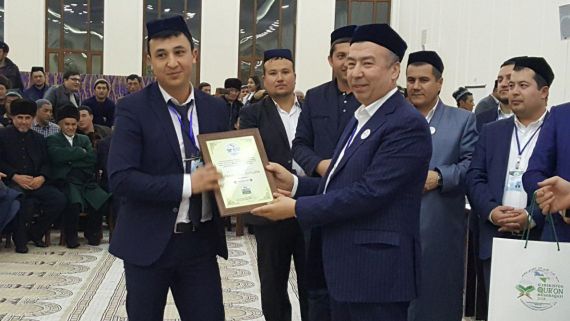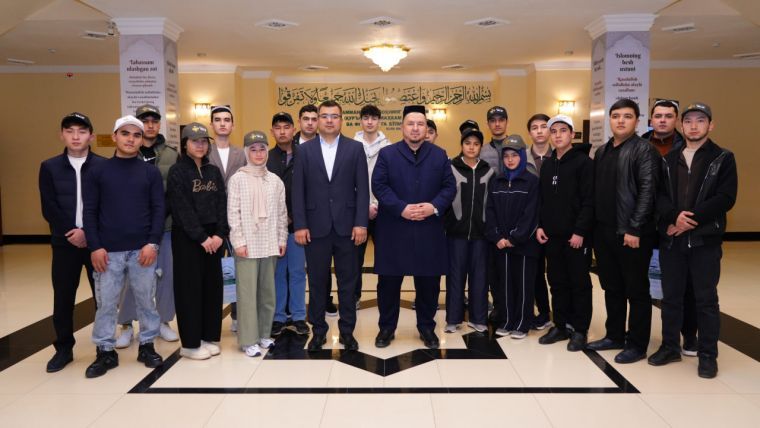Tashkent city



The regional rounds of Republican Qur’an Contest in Djizzak region ended in high spirit. The competition which is being held with the initiative of the President Shavkat Mirziyoyev was meant to discover new talents with the idea to support them in the future.
Here’s the list of winners.
MALE PARTICIPANTS
The first qualifying area:
Winners in Hifz (Qur’an memorization):
18-25 years old participants:
1st place – Dovudov Muzaffar
26-40 years old participants:
1st place – Saidazimov Abdulhamid
2nd place – Nishonov Abdurauf
3rd place – Malikov Sanjar
Winners in Tilawat nomination:
18-25 years old participants:
1st place – Khidirboyev Khusan
2nd place – Rahmatullayev Muhammaddiyor
3rd place – Kholturayev Abdurrazzoq, Khushbokov Sayoriddin
26-40 years old participants:
1st place – Mahmudov Bayozkhon
2nd place – Abdullayev Olimjon
3rd place – Turdiyev Sanjar
The second qualifying area:
Winners in Hifz (Qur’an memorization):
26-40 years old participants:
1st place – Atabayev Izzatulloh
Winners in Tilawat nomination:
18-25 years old participants:
1st place – Khamidov Islmojon
2nd place – Elmurotov Doniyor
3rd place – Urazametov Sardor
26-40 years old participants:
1st place – Mirzayev Abdusamad
2nd place – Norbotirov Abbos
3rd place – Abdurahimov Doston
FEMALE PARTICIPANTS
The first qualifying area:
Winners:
18-25 years old participants:
1st place – Atabayeva Nafisa
2nd place – Rashidova Niso
3rd place – Ubaydullayeva Soliha
26-40 years old participants:
1st place – Mirzakulova Makhsuda
2nd place – Ismatullayeva Mekhriniso
3rd place – Isayeva Markhabo
The second qualifying area:
Winners in Hifz (Qur’an memorization):
26-40 years old participants:
1st place – Bozorova Yorqinoy
2nd place – Qirjigitova Bibioysha
3rd place – Hakimova Dilnoza
Press Service,
Muslim Board of Uzbekistan

A group of talented Uzbek students has departed for Malaysia to pursue their higher education at the Al-Bukhary International University (AIU), thanks to a partnership between the "Vaqf" Charity Public Foundation, under the Muslim Board of Uzbekistan, and AIU.
The students were officially sent off from the Islam Karimov Tashkent International Airport. This collaboration marks a significant step in providing educational opportunities for young people in prestigious international institutions.
Albukhary International University currently hosts approximately 1,500 students from over 60 countries. The university offers high-quality education in various fields, including:
Business Administration
International Relations
Economics
Islamic Finance
Education (Pedagogy)
Press Service of the Muslim Board of Uzbekistan